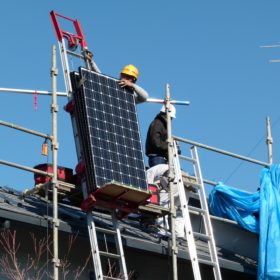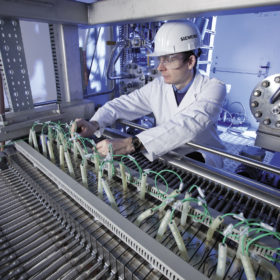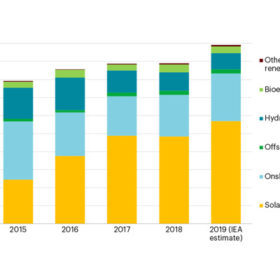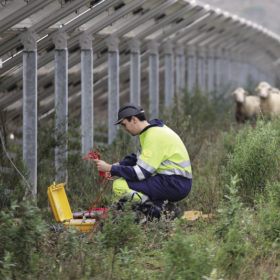Solar on track to become No. 1 energy resource by 2035, IEA finds
Just over three terawatts will be installed by 2040. Coal generation will remain largely flat, however. Gas generation capacity will rise, making CO2-emissions reduction unattainable under current projection scenarios.
Commercial rooftops will lead renewables growth in the next five years
Although the International Energy Agency’s latest renewables report forecasts impressive solar growth there is still a nagging feeling it has produced conservative estimates and the emphasis on sharing costs with grid operators is predictable.
Mali gold mine set for 30 MW of solar and 13.5 MWh of storage
Two German companies will develop one of the largest off-grid PV and storage projects to date. The low cost of the technology and expense of conventional generators is likely to see the hybrid plant recover its costs in three to seven years.
The slow, inexorable rise of green hydrogen
The International Renewable Energy Association says the integration of hydrogen into the energy transition will not happen overnight and electrolysis costs will not be halved until the 2040s. That hydrogen and related products could revolutionize the world energy landscape, however, is not in doubt.
International Energy Agency forecasts 115 GW of new solar this year
The global expansion of PV, wind power and other clean energies will see double-digit growth this year as solar continues to lead the pack.
‘The world has no chance of beating climate change if natural gas is part of the mix’
A report by Germany’s Energy Watch Group thinktank has said we would be better off sticking to coal and oil than switching to gas because emissions of methane, the most potent greenhouse gas, caused by gas extraction render any related carbon savings irrelevant.
This could be a watershed year for renewables in the mining sector
As one of the most energy-intensive industries, the ‘resource sector’ is getting serious about adding cheap solar and wind energy into its mix, to boost returns. Although still predominantly underpinned by gas or diesel, mine operations are increasingly deploying hybrid solutions, highlighting the potential of renewables – particularly as momentum builds for green hydrogen to play a role in future microgrids.
Green hydrogen airs at G20 meeting of energy ministers this week
Hello hydrogen! A number of factors are floating renewably powered hydrogen to the top of the agenda for worldwide energy ministers. Australia is among the countries most favourably placed to turn hydrogen hype into the biggest source of decarbonized energy the world has yet seen.
Solar, EVs and energy storage among the few technologies keeping pace with energy transition goals
Among 45 critical energy technologies and sectors assessed in a tracking report by the International Energy Agency, only seven are keeping hopes alive that climate, energy access and air pollution goals can be met.
IEA urges advanced economies to support nuclear as renewables cost continues to fall
An International Energy Agency report estimates the share of nuclear power in advanced economies could fall by two-thirds by 2040, as aging plants retire. The report claims without support for nuclear, the transition to a low carbon energy system would be far more complex and threaten global emissions targets.








